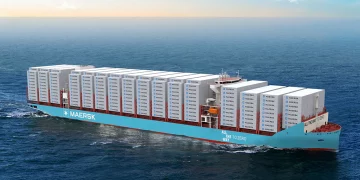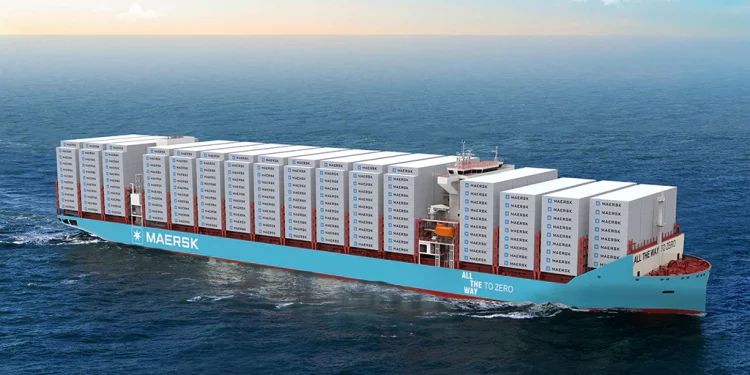Maersk, the world’s largest container shipping company, has announced a significant investment in developing autonomous container ships [1]. This bold move signifies a major leap towards a future where high-tech vessels navigate the world’s oceans without human crews on board.
Revolutionizing Maritime Operations
Autonomous ships, also known as unmanned surface vessels (USVs), have the potential to revolutionize maritime operations. These vessels utilize a combination of advanced technologies like artificial intelligence, sensors, and automation systems to navigate and operate independently.
Maersk’s Vision for Autonomous Shipping
Maersk envisions a future where autonomous ships operate on specific routes, particularly on well-defined long-distance journeys. This could lead to increased efficiency, cost savings, and potentially a reduction in human error.
Benefits of Autonomous Container Ships
Proponents of autonomous container ships highlight several potential benefits:
- Increased Efficiency: Autonomous operation could lead to more efficient route planning and optimized sailing times.
- Reduced Costs: Eliminating the need for crew salaries and onboard provisions could bring down operational costs.
- Enhanced Safety: Autonomous systems may be less prone to human error, potentially improving maritime safety.
Challenges and Considerations
Despite the potential benefits, significant challenges remain before autonomous container ships become a widespread reality:
- Technological Development: Advanced AI and sensor technology needs further refinement to ensure safe and reliable autonomous navigation.
- Regulatory Framework: Clear international regulations and safety standards are essential for the operation of autonomous vessels.
- Ethical Considerations: Concerns regarding potential job losses for seafarers and the ethical implications of unmanned vessels navigating the oceans need to be addressed.
Maersk’s Pioneering Approach
Maersk’s investment positions them as a leader in the development of autonomous shipping technology. Their involvement will be crucial in driving research, overcoming challenges, and shaping the future of this transformative technology in the maritime industry.
Looking Ahead
The journey towards autonomous container ships will likely be a gradual one. Maersk’s investment signifies a significant step forward, paving the way for pilot projects and real-world testing. As technology matures and regulations evolve, autonomous vessels could become an increasingly prominent feature on the world’s shipping lanes.
What to Watch For:
- Progress in Autonomous Ship Technology: The advancement of AI, sensor technology, and autonomous navigation systems.
- Maersk’s Pilot Projects: The outcome of any pilot projects involving autonomous container ships undertaken by Maersk.
- Regulatory Developments: The creation of international regulations and standards governing the operation of autonomous vessels.
Maersk’s investment in autonomous shipping technology is a bold bet on the future. With this move, the company aims to be at the forefront of a maritime revolution, ushering in a new era of high-tech, potentially more efficient, and potentially safer ocean cargo transportation.























